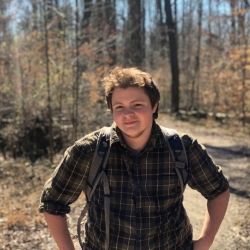English Camp - Written By Emeline Avignon
After two days of planning, and an exchange with the teenage youth group in Na Nong Bong, we finally arrived at the day of the English camp. Sleepily we all arrived to a temple outside the village, anticipate and not quite sure what the day entailed. We were pulled into a circle playing games in Thai and feeling awkward about the language barrier. It came time to teach the students English and I sat on the ground in a circle with my group, staring vacantly into their eyes. I was surprised when they sat there listening to the white foreigner who was occupying their weekend. “Haa-pee” I mouthed slowly and immediately they responded “haa-pee.” The rest of the session went smoothly and they all enjoyed and picked up quickly how to ask each other how they feel and reply how they feel. They all giggled as we acted out angry and excited with each other. I always thought I was a bad teacher because I am not good at explaining things, but when you do not have the ability to explain things actions truly speak louder than words.
As I walked away from the group to go wash my hands for lunch, I felt three small little hands grab mine and start to walk beside me. They smiled at me and showed me the bathroom and gestured for me to sit with them at lunch and never left my side the rest of the day, leading me in games and meeting the rest of the group. When we got back to the village after a day of the English camp, the same girls came and grabbed my hand and followed us to the rice fields and led us along the small walls of mud paving paths around the rice mudflats. We played games in the streets until the sun went down, and they waited for us outside my yai’s (grandmother) house while we ate, still playing peek a boo while we had to pause our play with them.
Although the purpose of the English camp on the outside was to teach the next generation of the village basic English so they can communicate their ideas, the final project was more at its core. As we reflected today on the camp I thought about why I was really here in Thailand for three weeks. Before I left, my friends, peers, and family asked me what I was doing there and I would respond: learning about the culture, trying delicious food, teaching english, and maybe learning to plant some rice. We were asked today: “Why do you think the village wanted us to do an English camp?” I think the English camp was not just an English camp. The camp was a culmination of our skills learning Thai, and understanding the future of the village that will face the mining environmental issues we learned about, amongst their culture we learned about. We gave the children and the village a small bit of information, but the true culmination was experiencing the feeling of the community and its future. We exchanged time together, and simply playing and the overwhelming feeling of welcome eased their adaptation to other communities. More communities together is stronger and builds empathy in the face of adversity. The kids simply interacting with foreigners will establish a future for them where they feel comfortable communicating with intruding groups like the mining company. I had no expectations but to learn and experience presence with others in their culture, and that is what the camp did. The homestay and English camp felt like this whole trip in two days, and was definitely the climax of our narrative here.
I think the community asked us to help with this camp to teach us about their lives: to have a chance and an excuse to live in the village with a purpose and not just passerbys. The villagers may see us and our language in some ways as the key to help solve their problem and future, but really I think our knowledge of their experiences, struggles, and lives that we can now share is the key to continue the fight for their hometown. It was a mutual relationship that was not just about teaching English, but teaching about cooperation and motivation in order to inspire each other to know there is hope and so much more we can teach each other, starting with feelings and vegetables.
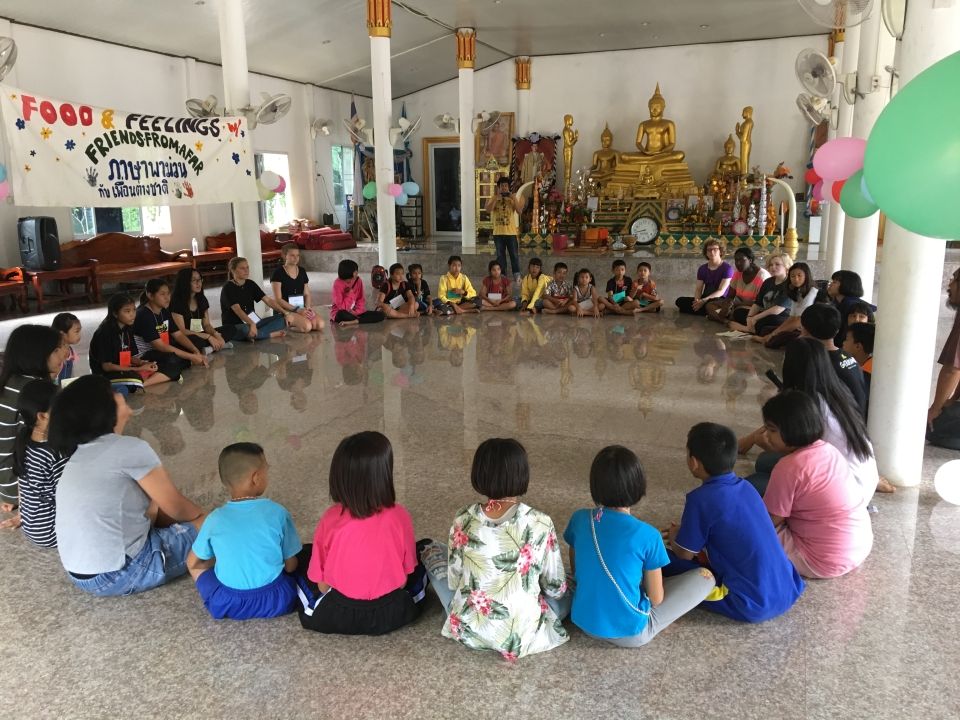
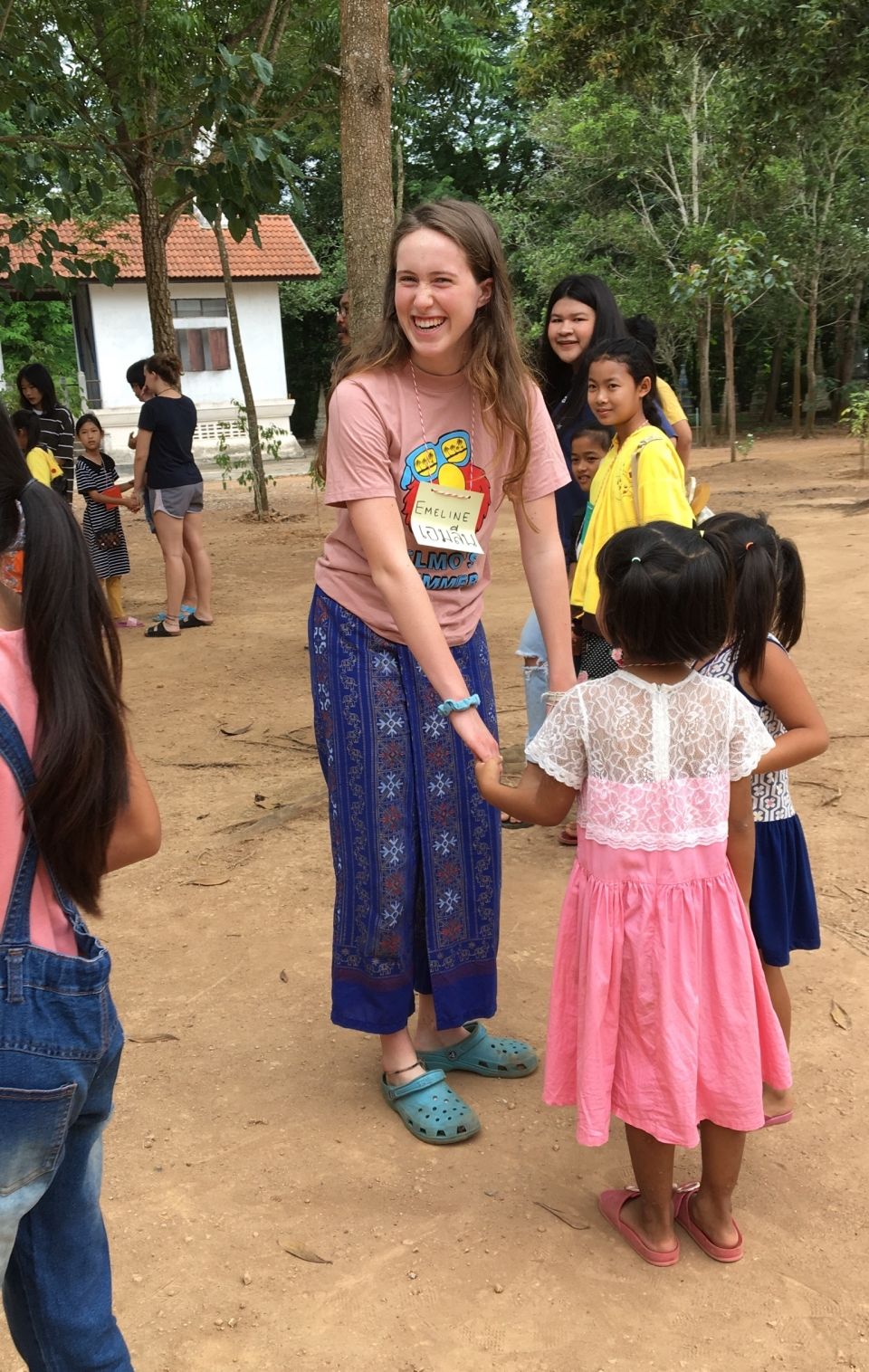
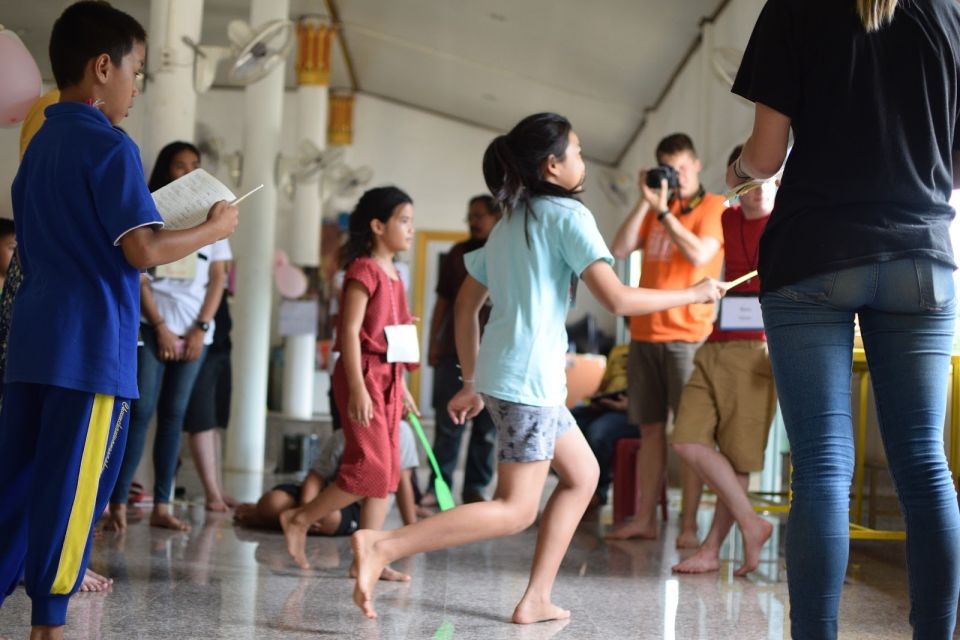
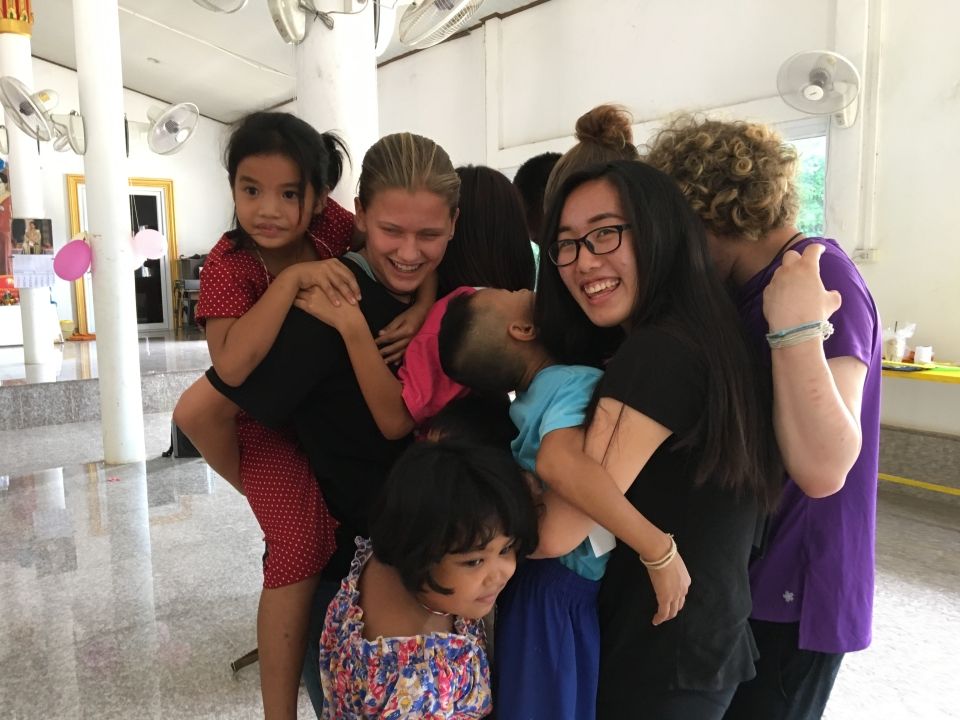
Related Posts
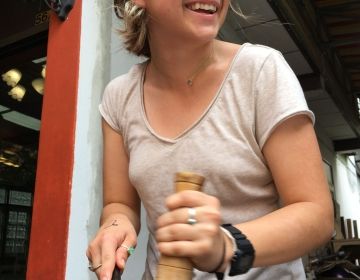
Homestay Prep and Khon Kaen Adventures
This week has been all about practicing Thai and learning about the environmental impacts of gold mining. The students spent time preparing for their upcoming community homestay by creating a... keep reading
Out with the Bad, In with the Good; Well Wishing During Traditional Baci Ceremony
After countless hours of travel by plane and van, we have arrived to the study center in Khon Kaen! Everyone is recuperating well from our long travel days and they... keep reading
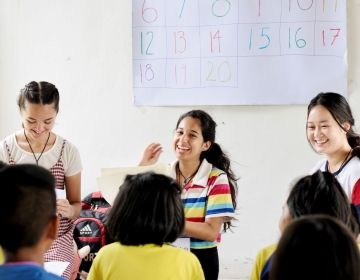
Sisaket, Sisaket, Ooohhh Sisaket
Our final project was the English camp which took place within the first few days of our last week here in Thailand. Kids from different schools around the Sisaket area... keep reading
